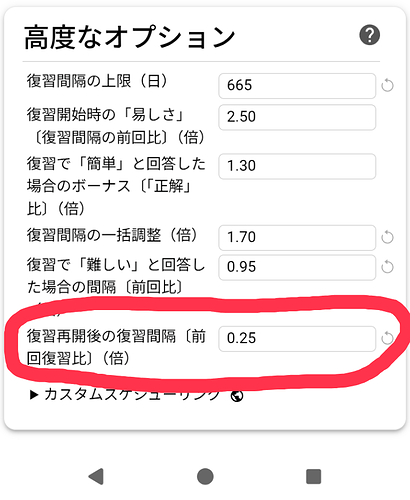I’ve been using Wanikani for close to a year now, and bunpro for a little while now (i had some big breaks periods but now i’m managing to stay consistent with it), with anki started around the same time as bunpro (initially bunpro was only for grammar, but i’ve been starting using it for vocab too)
I’ve got to admit… I feel like Anki doesn’t really work for me. I’ve tried multiple decks, starting with the Core 2K/6K to end up with the Wanikani mod Core 10k deck which imo is really amazing! built in IME so you can type in the answer (optional), every vocab is there three times (audio comprehension, JP->EN tl and EN->JP tl), there’s audio and example sentences etc… Obviously it’s a very VERY big deck, since it’s not only a core 10k and everything is there multiple times, and it also has example sentences cards which i decided to remove because at first they had too many unknown words for me to really work imo. The deck is divided into 10 3k cards subsets (when the sentences have been removed), and i’m almost done with the first one, which is 1000 vocab points.
And i feel like it’s not really working that well, compared to WK/Bunpro. The deck is amazing, don’t get me wrong, but i think it’s anki itself that simply does not do it for me. I’ve tried tinkering with the settings, but i feel like it’s just FSRS or whatever anki uses that does not work for me. I feel like the intervals just never work correctly, i really like how WK and Bunpro just drop you one grade when you fail (or more for bunpro if you want), and i can’t quite replicate that in anki. I think it also suffers from quantity over quality if that makes sense? Like flashcards are so quick to go through you tend to do more but at the cost of good reviews, idk.
I’ve started the N5 vocab deck on bunpro, and it feels soooo much more suited for me. One thing i’d love to be able to do (as a sidenote, if any of the devs read me), would be the ability to select multiple ways to review a deck, ie. being able to say “i want my vocab review to be translate manual answer, fill in manual answer and reading”, and every time you get a review it’ll be one of those three options instead of just always being whatever your set review type is set as. But even without that, i think it works way better for me: i change my deck review type every now and then to try and get every kind of retention going, and i feel like it works pretty well! Anki did help me consolidate what i learned from wanikani and i did learn a few words, but i feel like the time investment isn’t as optimized as what bunpro offers me.
I know everyone online swears by anki, but i’m thinking that once i’m done with the first set of my deck, i’m gonna stop getting new reviews from it and just review what i already learned from it and only use it for mining, once i’ll be starting immersion; while at the same time keep going through vocab on bunpro (using the N5 deck or one of the community core? not sure yet)
I know ultimately the decision of whether or not i should drop anki is up to me, but i’d rather get some second hand opinion. Has anyone here gone through a similar situation? Is there a hidden benefit to anki i quite can’t grasp, or would focusing only on bp/wk work better for me?


